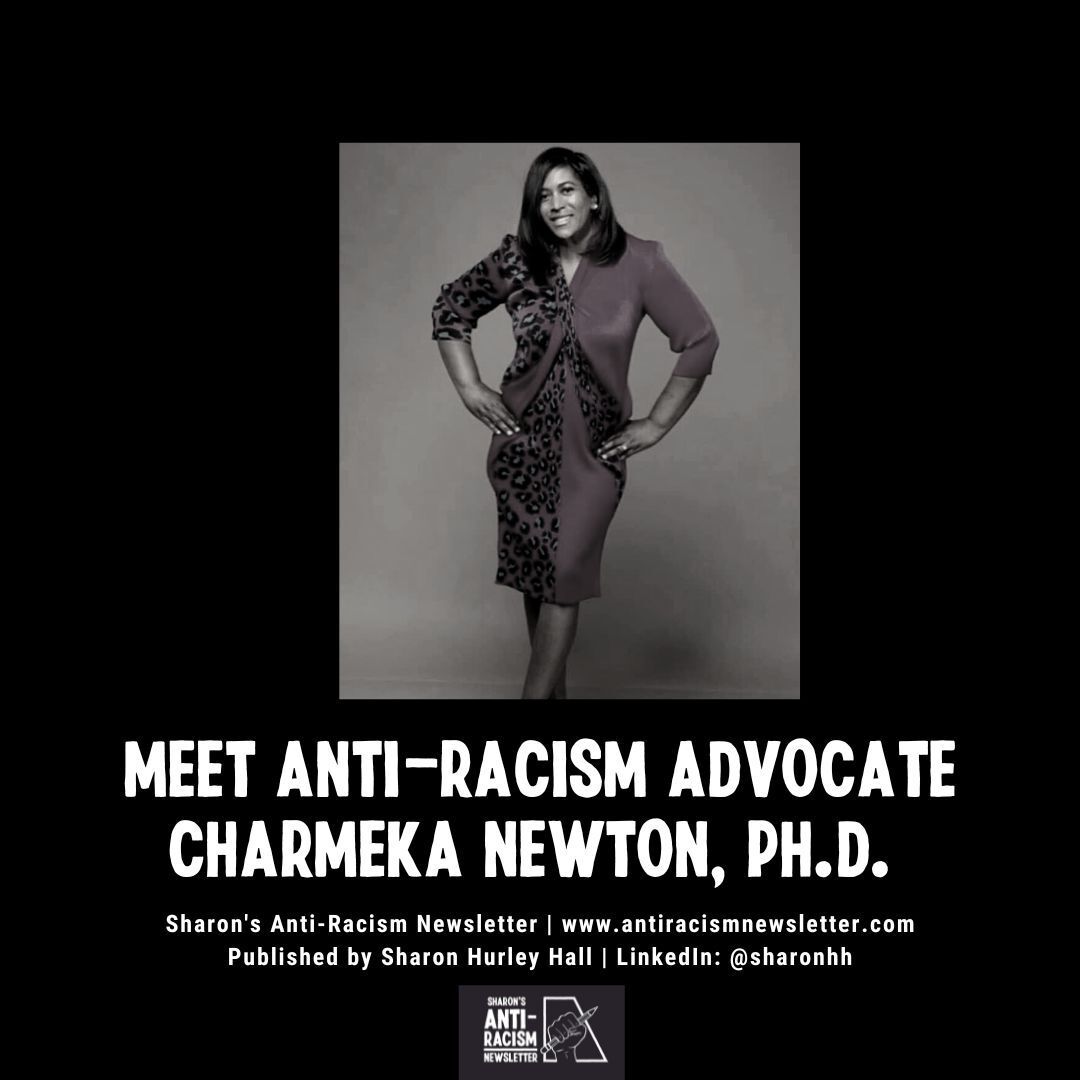Hello friends, when Dr. Charmeka Newton popped into my inbox a few weeks ago, it was a moment of connection. The title of her co-authored book, Black Lives are Beautiful, really resonated with me as it’s counter to the messages we often hear about the colour of our skin, and our very existence. I wanted to learn more, and thought you would too. Please meet Dr. Charmeka Newton…
Char, what made you become an anti-racism advocate and writer?
As the granddaughter of blue-collar workers who migrated from the deep south of Baton Rouge, Louisiana to Detroit, Michigan in the 1950s with the hope of escaping the racism of the Jim Crow segregated south from a young child I was well aware of the impact of racism on the Black soul.
I often heard my grandparents talk about the racism they faced in the south and how they marched with Dr. Martin Luther King. As a child and adolescent growing up, I heard their stories and when I reached young adulthood and left the safety of living in the Metro Detroit area (a predominantly Black community) I was met with my own experiences of racism.

Attending predominantly white higher education institutions of learning I experienced racism in the form of having my intelligence questioned, seeing Black scholars and voices being muted or outright excluded from learning, and questioning my own validity and beauty as a Black American.
As an African American cisgender woman I have overcome a lot of personal struggles including imposter syndrome, messages of internalized racism, and the struggles that come with being a first generation college student and professional who attempts to navigate predominantly white space and it is these lived experiences that have motivated me to become an anti-racism advocate and writer.
What anti-racist cause are you most passionate about, and why?
As a professor at a university I am passionate about decolonizing the curriculum so that the work of scholars of color can be heard and valued. I teach in the counseling field and I find it extremely important for us to decolonize the curriculum so that students who are in the training field can learn about culturally appropriate interventions that are most effective in working with clients of color.
The latter is important so that clients of color are able to get services that are respectful of their race and heritage. And it can help stop premature termination of services and help people heal from emotional hurt. I work to decolonize the curriculum by incorporating Black scholars into my course development and in the training I do with masters level counseling students. I also serve on my university’s DEI committee and I work to promote university-wide anti-racism training through the work I do on this committee.
What form does your activism take?
My activism comes through my writing because it my hope that my writing can help liberate people from the oppression we experiences in our bodies of color. My book Black Lives are Beautiful: 50 Tools to Heal from Racism and Promote Positive Identity is geared towards helping members of the Black community counter the impacts of racialized trauma while also cultivating self-esteem, building resilience, fostering community, and promoting Black empowerment.
What response have you had to your writing?
We’ve had a rather positive response. Mental health professionals have reached out to us and thanked us for writing the book and have incorporated it in their clinical work. We have also had people in the Black community encourage us for writing Black Lives Are Beautiful as it’s a tool for healing the community.
What are the top three takeaways from Black Lives Are Beautiful?
The top three takeaways I would like for people to take from my most recent book Black Lives are Beautiful are
There is power in us as Black people affirming ourselves, our beauty and our worth.
We should not let anti-Black messaging define us because the definition given to us by white supremacist America is wrong.
Self love has the potential to liberate yourselves and others.
An article that has really touched me was one that was written by Dr. Thema Bryant-Davis entitled Healing Requires Recognition: The Case for Race-Based Traumatic Stress. This article impacted me because it talks about the dismantling and healing of societal wounds of oppression while providing tangible steps towards healing. I truly appreciate the work of Dr. Bryant-Davis around liberation and this is one of my favorite pieces of hers.
In relation to racism, what is your vision for the future?
My vision for the future is that we keep our foot on the gas and keep pressing forward to create social change. Everyone’s social change efforts will look different. For me my social change efforts in the future will be to look for ways to get my voice and message of anti-racism heard nationally. My social change also involves giving back to the younger generation and serving my community. I think whatever we do we just have to keep doing it; we have to keep our foot on the gas.
I love this call to action - let’s keep going and take action on anti-racism!
What stood out most to you in this interview?
Folx, please follow Dr. Newton on her website, LinkedIn and Facebook, and of course check out her book!
Enjoyed this article? Feel free to click the 🔄 or ❤️ button to help others discover it. Thank you!
© Sharon Hurley Hall, 2023. All Rights Reserved.
I am an anti-racism educator and activist, Co-Founder of Mission Equality, the author of “I’m Tired of Racism”, and co-host of The Introvert Sisters podcast.
